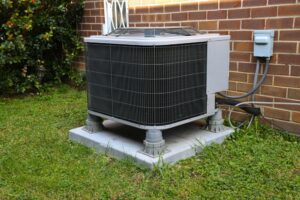In pursuing a healthy lifestyle, we often focus on eating right, exercising, and reducing stress. However, one crucial aspect we might overlook is the air quality we breathe, especially indoors.
Indoor air quality (IAQ) plays a significant role in our overall well-being, and a well-maintained Heating, Ventilation, and Air Conditioning (HVAC) system can significantly impact the air we breathe at home. In this article, we will explore the vital role of HVAC in indoor air quality and discover how to ensure cleaner air for you and your family.
Understanding Indoor Air Quality (IAQ)
Indoor air quality refers to the air condition within and around buildings, especially concerning the health and comfort of the occupants. Poor IAQ can lead to various health issues, including allergies, respiratory problems, headaches, and fatigue.
Common indoor pollutants include dust, pet dander, pollen, mold spores, volatile organic compounds (VOCs), and even harmful gases like carbon monoxide.
The HVAC System’s Impact on Indoor Air Quality
Your HVAC system plays a crucial role in maintaining a healthy indoor environment. Here’s how it influences indoor air quality:
- Filtration – HVAC systems are equipped with air filters that trap dust, debris, and other particles from the air. High-quality air filters can significantly improve IAQ by capturing even tiny airborne particles, thereby reducing the number of pollutants circulating in your home.
- Ventilation – Proper ventilation is essential to replace stale indoor air with fresh outdoor air. HVAC systems with ventilation systems help dilute indoor pollutants and maintain a healthier indoor environment.
- Humidity Control – Excessive humidity can lead to mold growth and the proliferation of dust mites, which can exacerbate allergies and respiratory problems. HVAC systems help regulate indoor humidity levels, creating an environment less favorable for mold and allergens.
- Temperature Control – Indoor temperatures that are too hot or cold can affect our comfort and even lead to health issues. A well-functioning HVAC system ensures that indoor temperatures remain comfortable and healthy.

Tips to Improve Indoor Air Quality with HVAC
To optimize indoor air quality and ensure cleaner air at home, consider the following tips:
1. Ensure you maintain your HVAC system regularly.
Schedule routine HVAC maintenance, including air filter replacement and professional inspections. Regular servicing keeps the system clean and operating efficiently.
2. Use high-quality air filters.
Invest in high-efficiency air filters that capture a broader range of particles, including allergens and pollutants.
3. Check for proper ventilation.
Consider opening windows to let in fresh air during mild weather. Additionally, make sure your HVAC system’s ventilation components are working correctly.
4. Use the appropriate humidifier device to control the home climate.
Use a dehumidifier to control excess moisture in humid climates. Consider using a humidifier to maintain appropriate indoor humidity levels in drier climates.
5. Double up on filtration with an air purifier.
Consider adding standalone air purifiers to complement your HVAC system’s filtration. These devices can target specific pollutants and allergens.
6. Have your ducts professionally cleaned.
Periodically have your HVAC ductwork professionally cleaned to remove accumulated dust, mold, and debris that may affect indoor air quality.
Optimize the Air Quality Inside Your Home with an HVAC
Clean, fresh air is essential for our health and well-being, and a properly maintained HVAC system can significantly contribute to better indoor air quality.
A-Tech Repair can help create a healthier home environment for yourself and your loved ones with their expertise. Prioritize your indoor air quality, and you’ll reap the benefits of improved health and comfort.



